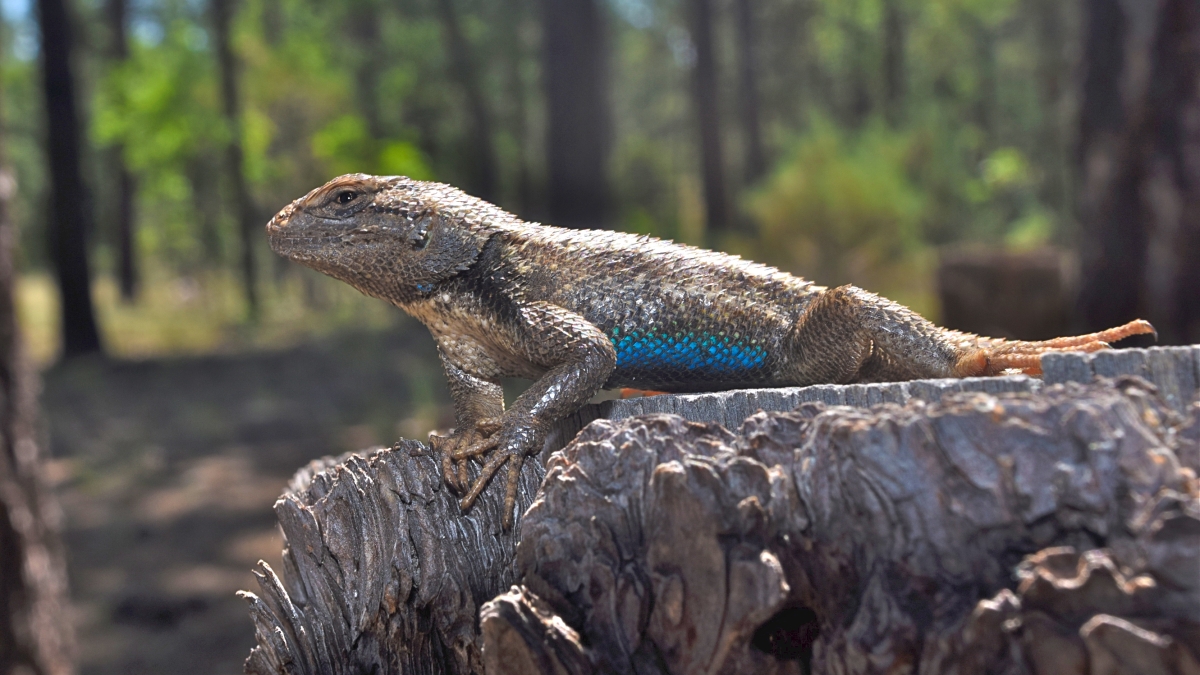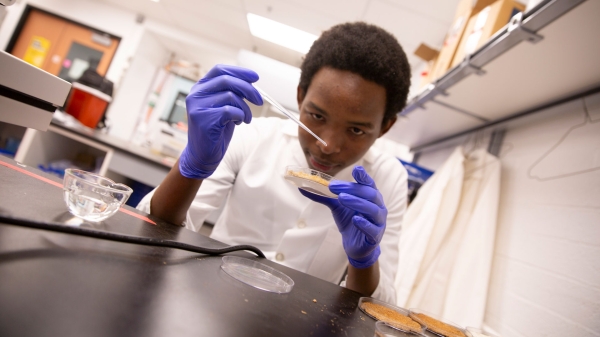Climate change lethal to baby lizards: Nests become heat traps

Global climate change is expected to negatively impact lizards more than first thought. Researchers have discovered that embryonic lizards cannot tolerate even short periods of high temperatures. (Pictured: A male Sceloporus tristichus.)
The expected impact of climate change on North American lizards is much worse than first thought. A team of biologists led by Arizona State University investigators has discovered that lizard embryos die when subjected to a temperature of 110 degrees Fahrenheit even for a few minutes.
The researchers also discovered a bias in previous studies, which ignored early life stages such as embryos. Embryonic lizards are immobile and cannot seek shade or cool off when their surrounding soil becomes hot.
This bias produced overly optimistic forecasts about the fate of lizards during climate change. Given the potential impacts on embryos, many more places in the United States could become uninhabitable for lizards than previously expected.
“Lizards put all of their eggs in one basket, so a single heat wave can kill an entire group of eggs,” said Ofir Levy, lead investigator of the study and postdoctoral fellow with ASU School of Life Sciences. “If mothers don’t dig deeper nests to lay their eggs, we expect this species to decline throughout the United States.”
The findings appear today online in the journal Proceedings of the Royal Society B.
After finding that lizard embryos cannot tolerate 110 degrees Fahrenheit for even a short period, the researchers used a climate model to predict how often heat waves in the past and future would kill developing lizards. Areas in the U.S. reaching lethal temperatures, even in the shade, could spread from 3 percent currently to 48 percent of the country in the next century.
Female lizards lay eggs in spring and summer, digging nests and then leaving their offspring to develop for more than two months. Mothers may choose shadier soils or dig deeper nests to help their offspring avoid the heat. But even if lizards lay eggs in cooler places, nests may still exceed the temperatures that embryonic lizards can tolerate. And, assuming that baby lizards could reach the surface after hatching from a deeper nest, that still may not offer enough protection. Repeated exposure to above-average but not lethal temperatures can negatively affect a lizard’s physiology and behavior.
“Since this year promises to be the hottest on record, we are asking whether organisms, like lizards, can adjust to their warming world,” said Michael Angilletta, professor and senior sustainability scientist with ASU School of Life Sciences. “It’s critical that we acquire detailed knowledge about what temperatures these lizards and other animals can tolerate throughout the life cycle, not just as adults.”
Levy added: “Because lizards are prey for animals such as birds, snakes and mammals, the harmful effects of climate change on embryonic lizards could also negatively affect other species.”
Investigators from the University of Washington and the University of Texas also participated in this study. The National Science Foundation supported this study with grants EF-1065638 and EF-1064901. Levy is supported by a Rothschild Post-Doctoral fellowship.
School of Life Sciences is an academic unit of ASU's College of Liberal Arts and Sciences.
More Science and technology

ASU author puts the fun in preparing for the apocalypse
The idea of an apocalypse was once only the stuff of science fiction — like in “Dawn of the Dead” or “I Am Legend.” However…

Meet student researchers solving real-world challenges
Developing sustainable solar energy solutions, deploying fungi to support soils affected by wildfire, making space education more…

Miss Arizona, computer science major wants to inspire children to combine code and creativity
Editor’s note: This story is part of a series of profiles of notable spring 2024 graduates. “It’s bittersweet.” That’s how…